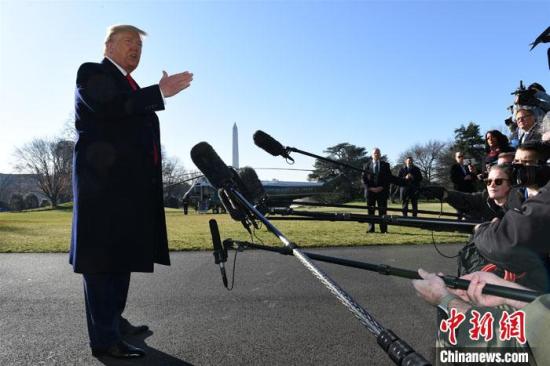
By Diao Daming
The United States and theTaliban signed a historic Afghanistan peace agreement in Doha, the capital of Qatar, on February 29.
According to the agreement, the US will reduce its troops in Afghanistan from 13,000 to 8,600 in the coming 135 days, and the Taliban will hold peace talks with the Afghan government while meeting America’s counter-terror demands. If everything goes well, all US troops will be withdrawn from Afghanistan within 14 months.
The negotiation between the Trump administration and the Taliban has lasted a year and a half.Given the progress in the past few months, even though the final inking of the deal came as no surprise to the world, it is after all a significant step toward ending 18 years of conflicts in Afghanistan.
Objectively speaking, the patience and eagerness demonstrated by both parties during the negotiation aremore because of their recognition that there is no way to continue fighting with each other than out of their common wish for peace.
For the US, the mire of Afghan war has made history for lasting longer than the Vietnam War, costing far more money, materials and deaths than the September 11 incident that caused the war in the first place. Keeping up military operations of such a large scale is just not worth the candle anymore.
As for the Taliban, although it has staged all kinds of attacks to warn the US, it has hardly ever got the upper hand in the confrontation with the well-equipped American troops. Besides, being in a wartime state for so many years has prevented the organization from achieving its political goals.
The new peace deal is obviously a “political achievement” that president Trump needs most with the reelection looming in eight months. This is also why he made a sudden visit to Afghanistan during last year’s Thanksgiving and reaffirmed his commitment to taking American soldiers home after having to call off the Camp David meeting in the last minute in September 2019 due to Taliban attack.
However, the current timetable for troops withdrawal uses a noticeable “President Trump's playbook” despite the actuarial calculations in some way. The 14-month-long period of withdrawing troops covers the election in November and is therefore tantalizing enough for the voters. Meanwhile, it’s long enough for the Trump administration to have comprehensive observation and judgment of the situation inside and outside of Afghanistan, so it will have the chance to make adjustments 14 months later if it wins the reelection.
This means the first challenge to restoring real peace through the deal is how Afghanistan’s internal mediation will go in the next 14 months or a shorter period.
As a matter of fact, it was a hidden danger that the US was so eager to have the peace talks directly with Taliban without engaging the Afghan government from the beginning. Later the Afghan government, barely able to hang on due to the deep-rooted internal strife, had no choice but follow in America’s steps in the peace talks and had more engagement with the Taliban.
The Taliban, on the other hand, has expressed its wish to promote the talks and stop violent conflicts in various ways. On February 20, Sirajuddin Haqqani, deputy leader of the group, published a signed article on New York Times, saying if they could reach a deal with a foreign enemy, they were definitely able to resolve Afghanistan’s internal divergences through dialogue.
The problem is that thiscentral Asian country was established on the basis of different clans with fragmented state or national recognition. Under such circumstances, it’s not hard to drive away a foreign enemy that doesn’t belong there at the early beginning, but reaching a suit-all reconciliation among different forces on the land is bound to be more challenging. It requires a strong and common wish, great courage and exceptional political wisdom of both parties.
It has to be admitted that the US still plays a critical role in this arduous process. While the Trump administration, with the upcoming reelection, will impose great pressure on both parties, especially the Afghan government, the latter may well seek help from the Democrats like Pelosi on the excuse of “human rights” and other topics in order to protect its own interests, thus counterbalancing the Taliban through Washington. Actually, Pelosi squeezed time to meet with Afghan President AshrafGhani on the sideline of the 56thMunich Security Conference in Germany in mid-February.
The peace deal marks a new beginning, but more like the beginning witha long way to go. Unlike the over-optimism expressed by US president and Secretary of State for political considerations, the US Defense Secretary Esper reflected the Pentagon’s calm by saying, “This is a hopeful moment, but it is only the beginning. The road ahead will not be easy. Achieving lasting peace in Afghanistan will require patience and compromise among all parties.”
Yet thisis only half-right. Achieving lasting peace in Afghanistan will require the united efforts of all Afghan and international parties. The only thing it does not need is the engagement and interference of any form conducted by the US to serve its own hegemony and interests.
Diao Daming, a researcher at the National Academy of Development and Strategy, Renmin University of China (RUC)









